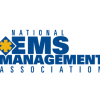Dear EMS Director,
I am responding to your request for two new ambulances and additional paramedic resources. As a new city manager, I want you to know that despite the current budget shortages, I have considered your request carefully. I have to confess, in being new to this position, that I did not know a lot about EMS before you made your request. But I made it my business to learn more, and I have to tell you, I’ve been amazed to learn about the size and reach of the industry.
Being a product of my generation, I went to the Internet to learn about EMS and quickly found a Wikipedia entry. While Wikipedia is not always reliable, it can often lead to other good sites—and in this case, it led me to ems.gov, which is run by the federal government’s Office of EMS. At first, I was surprised to discover that this office is in the Department of Transportation. But then, I said to myself, “This makes sense. EMS is about the transportation of sick and injured people, right?” But I couldn’t have been more wrong.
On the Office of EMS website I found a page titled “What is EMS?” Here’s what it explained to me: “EMS is an intricate system, and each component of this system has an essential role to perform as part of a coordinated and seamless system of emergency medical care. An EMS system comprises all of the following components: agencies and organizations (both private and public); communications and transportation networks; trauma systems, hospitals, trauma centers and specialty care centers; rehabilitation facilities; highly trained professionals (volunteer and career prehospital personnel, physicians, nurses and therapists, administrators and government officials); and an informed public that knows what to do in an emergency.”
All I can say is, wow! Emergency medical services are huge. As our EMS director, you must be very proud—and very busy.
While, this year, we will not be able to fund the ambulances and paramedics you requested, you will be happy to know our budget is chockfull of good things for the EMS system. We are giving supplemental funding to our local trauma hospital, we are putting additional monies into local disaster preparedness (did you know the federal EMS for Children program has just created some great interactive tools for disaster volunteers?), we are giving several million dollars to the public safety communications center for new towers, we have dedicated monies to help fund a brain injury rehabilitation center, and we are helping the fire department equip and staff several more EMS first responder units.
With ambulances and ambulance personnel being such a small part of the EMS system, we decided to wait on your request, as we are already doing so much.
Meantime, could you help me justify to the city council the money we would like to spend on the fire department’s additional first response units? Please send statistics and research on the necessity and value of these units. We have a cantankerous councilman who wants to know why we’re sending fire trucks with four firefighters to every medical call. I’m sure you have the supporting material to explain this.
Thanks, and I look forward to working with you on the many varied aspects of emergency medical services.
Sincerely,
Bill Scrivener, City Manager
John Becknell is the founding publisher of Best Practices. You can reach him at jmbecknell@gmail.com.












